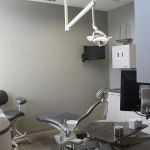How to Care for Your Child’s First Set of Teeth: A Parent’s Guide
As a parent, one of the most exciting milestones in your baby’s development is the arrival of their first tooth. The sight of that tiny, pearly white tooth peeking through is not just a proud moment, but also a signal that it’s time to start taking care of those little teeth. But how exactly should you care for your child’s first set of teeth? Let me share some valuable insights, tips, and personal experiences to help you navigate this crucial stage of your child’s growth.
The First Tooth: A Big Milestone
When my first child, Lily, got her first tooth, I remember being both excited and a little nervous. I didn’t know exactly when to start brushing, what products to use, or if I was even doing it right. I quickly realized that my little one’s first tooth was more than just a cute milestone; it was the beginning of a lifelong journey of oral health. You may feel the same way, but don’t worry! Caring for your child’s first set of teeth is simple once you know what to do.
Why Early Dental Care Matters
Dental health starts from day one, even before your baby’s teeth start to appear. Establishing good oral hygiene habits early on sets the foundation for a lifetime of healthy smiles. Poor oral hygiene can lead to tooth decay, which is not only painful but can affect speech, nutrition, and overall health.
Step 1: Clean Your Baby’s Gums Before Teeth Appear
Even before those first little teeth make their appearance, it’s important to start cleaning your baby’s gums. After every feeding, gently wipe their gums with a soft, clean cloth or a soft infant toothbrush. This removes bacteria that can lead to future tooth problems. I remember doing this with Lily even when she didn’t have any teeth yet, and it helped establish a routine that would later transition to brushing her teeth as they erupted.
Step 2: Start Brushing as Soon as the First Tooth Appears
Once your baby’s first tooth emerges, it’s time to introduce them to the world of brushing. You don’t need to wait for all their teeth to come in—start brushing as soon as that first tooth is visible. I used a soft-bristled toothbrush designed specifically for infants, and I made sure to use a tiny amount of fluoride-free toothpaste. Gently brushing the tooth in a circular motion helped prevent plaque buildup and established a daily habit.
What Toothpaste Should You Use?
Choosing the right toothpaste for your baby is crucial. Pediatricians and dentists recommend fluoride-free toothpaste for infants. It’s tempting to think that any toothpaste will work, but babies tend to swallow toothpaste, and fluoride can be harmful in large amounts if ingested. As Lily’s teeth grew, I gradually transitioned to a pea-sized amount of fluoride toothpaste once she turned two, after confirming it was safe for her.
Step 3: Monitor Their Diet
Your baby’s diet plays a huge role in their oral health. Limiting sugary foods and drinks—especially sticky snacks like fruit snacks—can reduce the risk of cavities. I learned the importance of offering healthy, tooth-friendly snacks like fresh fruits, vegetables, and whole grains, which not only supported Lily’s development but also helped her teeth stay healthy. Avoid giving your baby sugary drinks or letting them fall asleep with a bottle of milk or juice, as these can cause tooth decay.
Step 4: Teach Proper Brushing Habits
As your child grows and gets more teeth, you can start teaching them how to brush properly. By the age of three, most children can begin brushing their own teeth with some guidance. I remember teaching Lily to hold her toothbrush and use a gentle back-and-forth motion. It wasn’t easy at first, but it was such a rewarding experience as I saw her develop the ability to brush her own teeth—and she was so proud of herself!
When to Start Seeing the Dentist
Another crucial part of caring for your child’s teeth is ensuring they get regular dental checkups. According to the American Academy of Pediatric Dentistry, your child should visit the dentist by their first birthday, or within six months after their first tooth erupts. This might sound early, but it’s a great time to get your child comfortable with the dentist and to address any potential concerns. I was amazed at how my pediatric dentist helped Lily feel at ease during her first visit, and it set the stage for positive dental experiences as she grew.
Handling Teething Pains
Teething can be tough for both parents and babies. The drooling, the discomfort, the sleepless nights—it can all feel overwhelming. I remember how challenging it was for Lily when her teeth first started coming in. We tried several remedies, including teething rings, cool washcloths, and gentle gum massages. Some babies may need more relief, so it’s a good idea to talk to your pediatrician if the teething pain becomes too much.
Common Issues with Baby Teeth and How to Prevent Them
As your baby’s teeth grow, you may notice some common issues like tooth sensitivity or even early cavities. One of the most important things to remember is that baby teeth are just as important as adult teeth. Cavities in baby teeth can lead to problems with permanent teeth, so it’s essential to address any issues early. Routine dental visits, a healthy diet, and proper brushing habits can help prevent most issues. For example, if you notice your baby developing a habit of thumb-sucking, it’s essential to gently address this behavior, as it can affect the alignment of their teeth.
The Power of a Healthy Smile
As I look back on Lily’s early dental years, I realize how important those early habits were in shaping her attitude toward oral health. Today, she loves brushing her teeth and understands the importance of taking care of her smile. Establishing a positive relationship with dental care in those first few years can set the tone for a lifetime of healthy teeth.
As a parent, it’s easy to feel overwhelmed by all the information out there, but by focusing on a few key practices—regular cleaning, brushing with fluoride-free toothpaste, and monitoring diet—you’ll be on the right track to ensuring your child’s first set of teeth stays healthy. And remember, if you ever have doubts or concerns, don’t hesitate to reach out to your pediatric dentist for advice and support.
Wishing you and your little one a lifetime of healthy smiles!







 Dr. David S. McGee, DMD5.0 (10 review)
Dr. David S. McGee, DMD5.0 (10 review) Dr. David Scharf - Long Island Periodontist & Dental Implants4.0 (234 review)
Dr. David Scharf - Long Island Periodontist & Dental Implants4.0 (234 review) Harbor Cove Dental5.0 (191 review)
Harbor Cove Dental5.0 (191 review) Perth Amboy Pediatric Dentistry & Orthodontics4.0 (455 review)
Perth Amboy Pediatric Dentistry & Orthodontics4.0 (455 review) All Star Dental Clinic4.0 (322 review)
All Star Dental Clinic4.0 (322 review) Coker Dental: Dr. William L. Coker, DDS4.0 (25 review)
Coker Dental: Dr. William L. Coker, DDS4.0 (25 review) The Importance of Oral Health Education During Pregnancy for a Healthy Pregnancy
The Importance of Oral Health Education During Pregnancy for a Healthy Pregnancy Best Tips for Brushing Your Teeth Properly for Healthy Gums: Essential Techniques for Oral Health
Best Tips for Brushing Your Teeth Properly for Healthy Gums: Essential Techniques for Oral Health Why Skipping Dental Checkups Can Lead to Bigger Oral Health Problems
Why Skipping Dental Checkups Can Lead to Bigger Oral Health Problems Advantages of Porcelain Dental Restorations
Advantages of Porcelain Dental Restorations How Can Diabetes Cause Tooth and Gum Problems? Preventing and Managing Oral Health Issues
How Can Diabetes Cause Tooth and Gum Problems? Preventing and Managing Oral Health Issues Healthy Habits for Promoting Good Oral Health and Hygiene: Tips for a Healthy Smile
Healthy Habits for Promoting Good Oral Health and Hygiene: Tips for a Healthy Smile